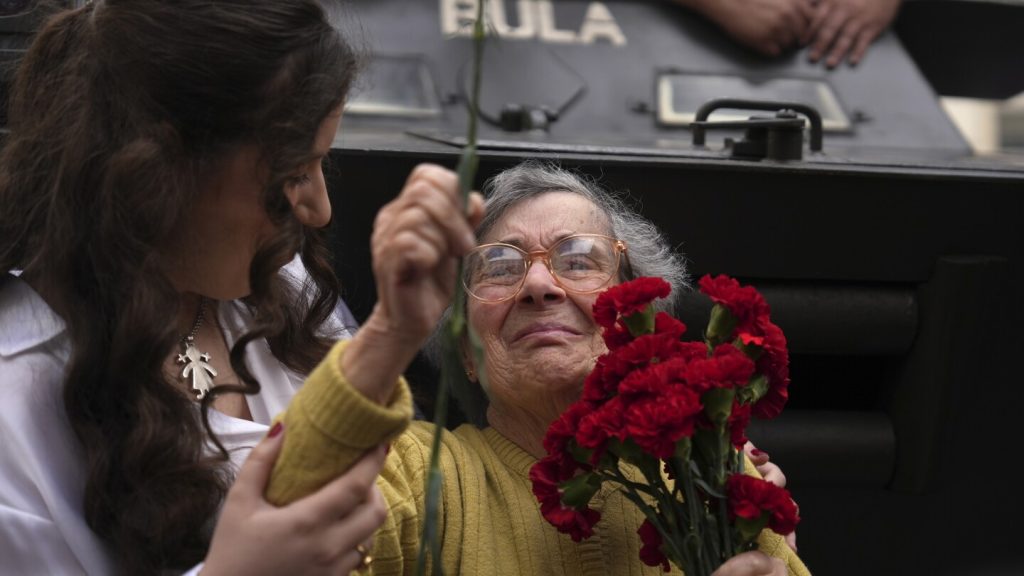The celebrations of the 50th anniversary of the Carnation Revolution in Portugal brought tens of thousands of people to the streets of Lisbon. The revolution, which ended a four-decade dictatorship established by Antonio Salazar, paved the way for Portugal’s entry into the European Union in 1986. At the time of the revolution, there was political uncertainty in Portugal, causing concern in Western capitals as the Portuguese Communist Party seemed poised to take power. However, moderate parties were victorious at the ballot box, leading to a democratic transition.
The red carnation, symbolizing the revolution, was prevalent during the celebrations, with many onlookers holding the flowers as troops and armored vehicles paraded through the streets. One participant in the uprising, 71-year-old Paulo Simões, expressed a sense of duty fulfilled, while Maria Monteiro, the wife of a soldier involved in the revolution, emphasized the importance of defending the freedom that was achieved. The day included reenactments of key moments from the uprising, with troops and armored vehicles moving into downtown squares to recreate pivotal events from the revolution.
Soldiers reenacted the convergence on a paramilitary garrison where Marcelo Caetano, the Portuguese leader at the time, surrendered to the insurrectionists. This moment marked the end of the dictatorship and the beginning of a new era of democracy in Portugal. The revolution was sparked by frustration with prolonged colonial wars in Africa and the desire for independence. The uprising, led by junior officers, successfully toppled the dictatorship in approximately 24 hours, resulting in only five deaths.
The Carnation Revolution brought an end to Salazar’s rule, which had lasted for decades and resisted modernization in the face of cultural changes in Europe. The revolution allowed Portugal to transition to a democratic system and paved the way for its integration into the European Union. The annual march along Freedom Avenue in Lisbon commemorates the revolution and serves as a reminder of the importance of defending the hard-won freedom. The events of the revolution and the subsequent transition to democracy are still commemorated and celebrated in Portugal today, 50 years after the historic events took place.


